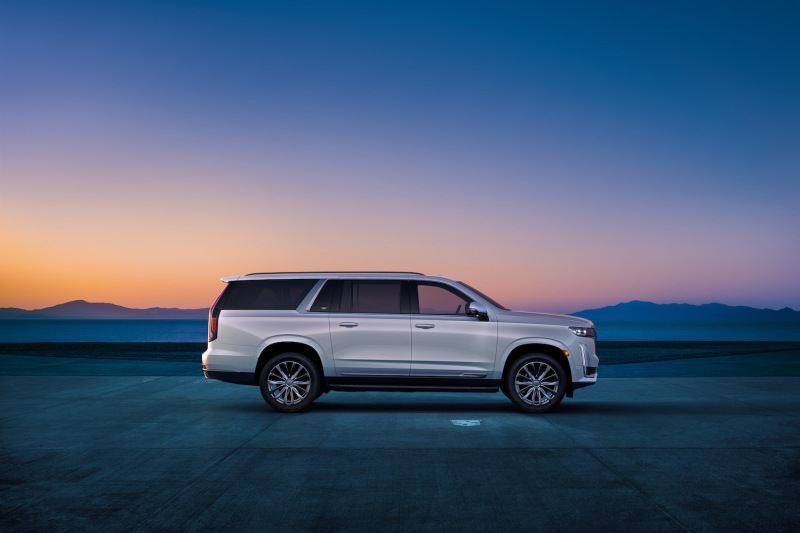
The pandemic caused used car prices to go haywire. Everyone wanted to buy a car, but new ones weren’t available, so they went to the used car markets. High demand resulted in high prices and chaos. While finding a new car at a dealership without a massive markup is still difficult, you’ll want to pay extra close attention to car value and what car you buy while asking yourself — what is my car worth? — because depreciation could be on your side or against you.

These ten cars have the worst resale values
iSeeCars analyzed over three million three-year-old and five-year-old used cars sold in 2022 to find which vehicles hold onto their values and which ones depreciate like rocks. Because of the pandemic, used vehicles retained their resale value more than before. But quite a few used cars had depreciation figures that crossed over 50%, well above the national average of 33%.
So, if you’re looking to avoid a vehicle with a horrible resale value, you’ll want to stay far away from these ten models:
- BMW 7-Series: 56.9%
- Maserati Ghibli: 56.3%
- Jaguar XF: 54%
- Infiniti QX80: 52.6%
- Cadillac Escalade ESV: 52.3%
- Mercedes-Benz S-Class: 51.9%
- Lincoln Navigator: 51.9%
- Audi A6: 51.5%
- Volvo S90: 51.4%
- Ford Expedition: 50.7%
Saying that a car fell by over 50% in value over five years is one thing, but for some added context, the 7-Series sedan’s depreciation figure means it lost an average of $61,923 from its starting MSRP. That’s just over five years! The Ford Expedition, which seems like a great option from a resale standpoint compared to the 7-Series, lost an average of $32,674 from MSRP over five years.
The vehicles aren’t all that surprising. Everyone that’s ever spent some time searching for a used vehicle on Craigslist knows that German luxury cars depreciate like graphics cards after a crypto crash. If you have a few seconds, check out how much a used Mercedes-AMG model costs compared to a new one. It’s almost sad.
With SUVs being such hot commodities these days, we are a little puzzled to see a few SUVs on the cars-to-stay-away-from list. iSeeCars believes that high gas prices greatly affected how severely these large SUVs depreciated.
So, if you want a vehicle that will hold onto its value well, you’ll want to avoid luxury cars and large SUVs. Instead, choosing a vehicle with little depreciation, like the Jeep Wrangler (7.3%), Porsche 911 (14.6%), Toyota Tacoma (14.9%), Honda Civic (16.3%), and Toyota Corolla (19.8%), is a safe bet.

Why does auto resale value matter to consumers?
There are numerous reasons why auto resale value matters to consumers, and we have briefly notarized these reasons below:
- Car upgrade affordability: A vehicle with an excellent resale value can be an incredibly valuable asset when purchasing a new car. If your current vehicle has a high resale value, it means that you have more selling or trade-in value and won’t have to spend as much on a new vehicle. Essentially, if you have a car with a high resale value, you’re more likely to afford a new and improved vehicle as you’ll have access to a higher lump sum for a downpayment.
- Brand reliability and reputation: Often, vehicles with strong resale values are manufactured by reputable brands known for producing reliable vehicles that are worth their pricing. This means that if a car has a higher resale value, consumers enjoy the peace of mind of owning a vehicle that holds its value well. Essentially, high resale value signifies quality craftsmanship, dependable performance, and the likelihood of fewer mechanical problems while owning it.
- Easier selling process: A well-maintained vehicle with good resale value is generally easier to sell in the United States and globally. This is because it has a higher demand in the used car market, with more people wanting to purchase your current car. So if you have a vehicle with a high resale value, it can expedite the selling process. This will most likely save you time and effort when it’s time to part ways with your beloved vehicle while leaving you with a better chance of a bigger purse.
These are only some of the reasons auto resale values matter.
Editors' Recommendations
- The 9 best sports cars under $100k you can get
- Report: Only one-third of car dealerships have an EV available for purchase right now
- What’s the ideal amount of horsepower for a sports car?
- The 10 best car leather cleaners (so you don’t ruin your car’s interior)
- These are the most reliable cars, according to J.D. Power





